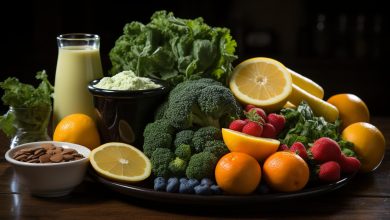Sports Nutrition for Vegan and Vegetarian Runners: Meeting Nutritional Needs

Are you a vegan or vegetarian runner looking to optimize your performance? Discover the key to meeting your nutritional needs with sports nutrition for vegan and vegetarian runners.
This informative article will explore the importance of protein, essential vitamins and minerals, fueling your workouts with carbohydrates, hydration strategies, and recovery nutrition.
Don’t let dietary restrictions hinder your athletic potential – learn how to nourish your body effectively on a plant-based diet.
Get ready to take your running game to the next level!
The Importance of Protein for Vegan and Vegetarian Runners
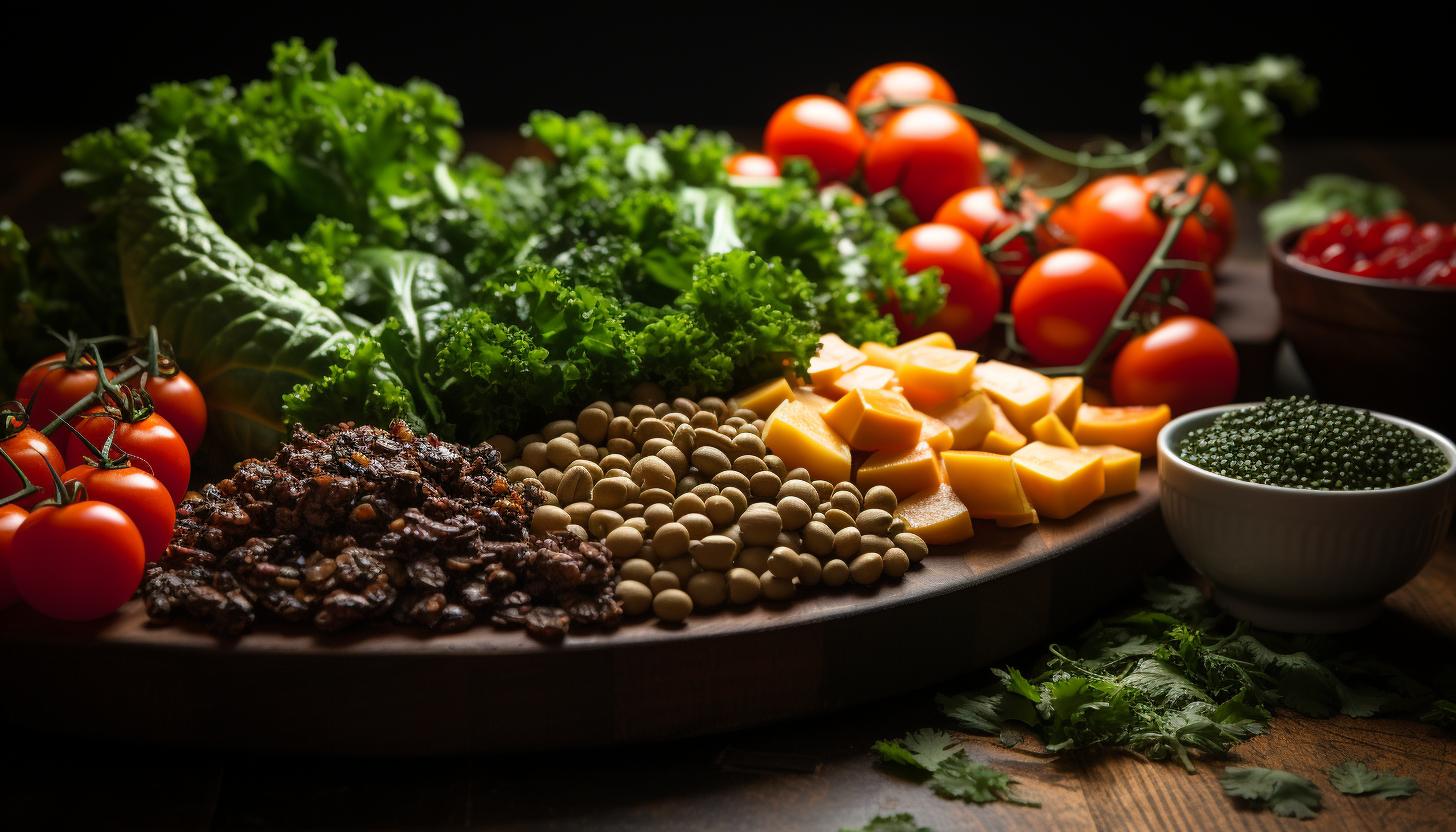
Protein is essential for vegan and vegetarian runners because it helps with muscle repair and recovery. As a plant-based athlete, you might be concerned about meeting your protein requirements. Thankfully, there are plenty of plant-based protein sources that can help fuel your runs and support your overall health.
Legumes such as lentils, chickpeas, and black beans are excellent sources of protein. They not only provide a good amount of protein but also offer fiber, vitamins, and minerals. Tofu and tempeh are also great options as they contain high-quality proteins that can aid in muscle repair after intense workouts.
Additionally, whole grains like quinoa and brown rice contain some protein to support your training needs. Nuts and seeds like almonds, chia seeds, and hemp seeds are packed with both protein and healthy fats which can provide sustained energy during long runs.
To ensure you’re getting enough protein as a vegan or vegetarian runner, aim for around 1.2-2 grams of protein per kilogram of body weight per day. This will vary depending on your individual needs and training intensity.
Transitioning into the subsequent section about essential vitamins and minerals for plant-based athletes:
In addition to meeting your protein requirements, it’s important to also focus on obtaining essential vitamins and minerals to support optimal performance as a vegan or vegetarian runner.
Essential Vitamins and Minerals for Plant-Based Athletes
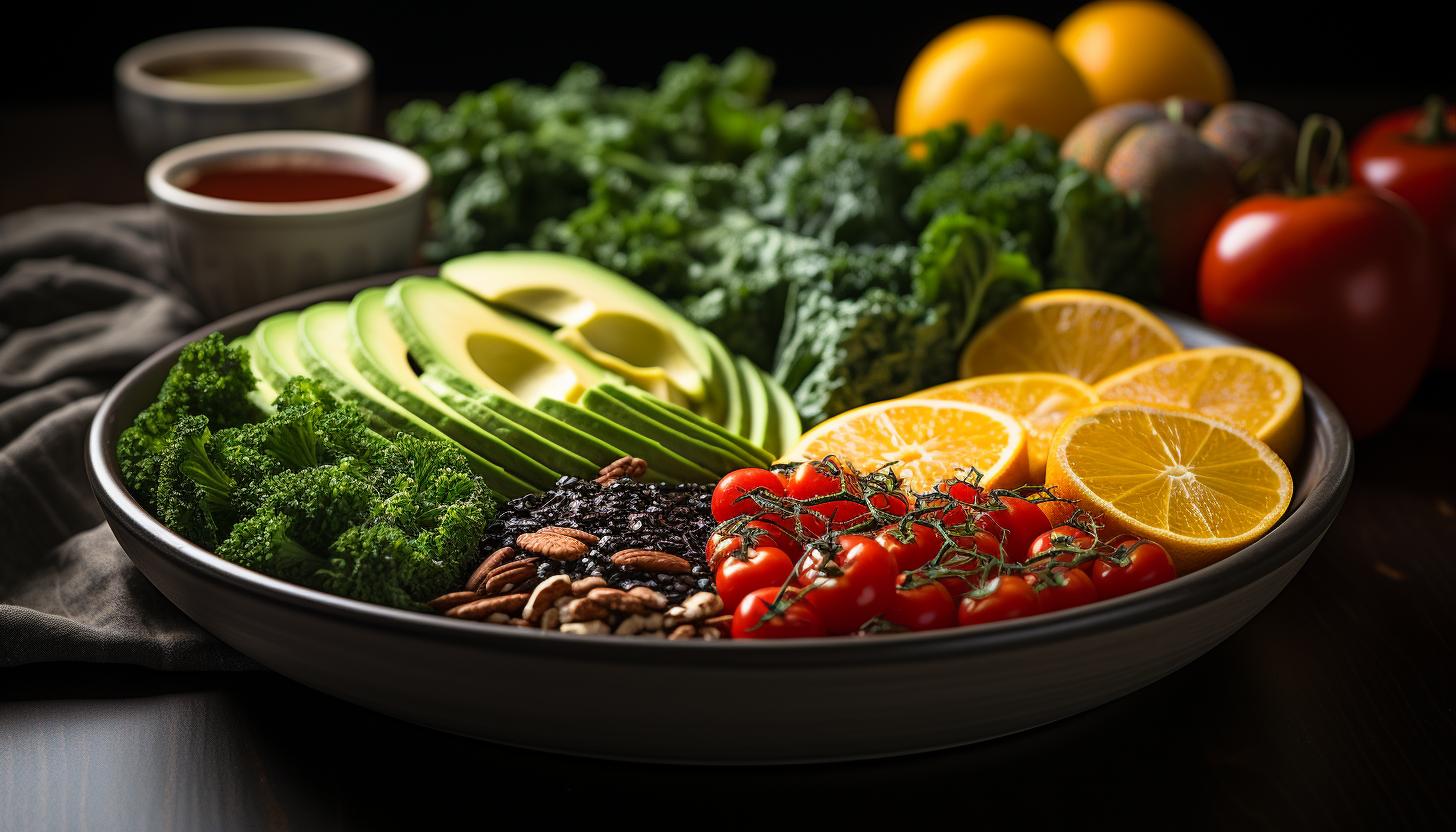
Including enough essential vitamins and minerals in a plant-based diet is crucial for the overall health of athletes. As a vegan or vegetarian runner, it’s important to ensure you’re getting all the necessary nutrients to support your training and recovery. Two key nutrients to pay attention to are iron and omega-3 fatty acids.
Iron is essential for oxygen transport in the body, which is especially important for runners who need ample oxygen supply during exercise. While animal products are rich sources of iron, there are also plenty of plant-based options that can provide this vital nutrient. Incorporating foods like spinach, lentils, tofu, quinoa, and fortified cereals into your diet can help meet your iron needs.
Omega-3 fatty acids play a role in reducing inflammation and supporting heart health. While fish is commonly associated with omega-3s, there are plant-based sources available as well. Flaxseeds, chia seeds, walnuts, hemp seeds, and algae-based supplements are excellent choices for vegan and vegetarian runners looking to optimize their omega-3 intake.
To make it easier for you to identify these key nutrients in plant-based foods, here’s a table highlighting some good sources:
| Nutrient | Sources |
|---|---|
| Iron | Spinach, lentils |
| Tofu | |
| Quinoa | |
| Fortified cereals | |
| Omega-3 | Flaxseeds |
| fatty acids | Chia seeds |
| Walnuts | |
| Hemp seeds | |
| Algae-based supplements |
Fueling Your Workouts: Carbohydrates for Vegan and Vegetarian Runners
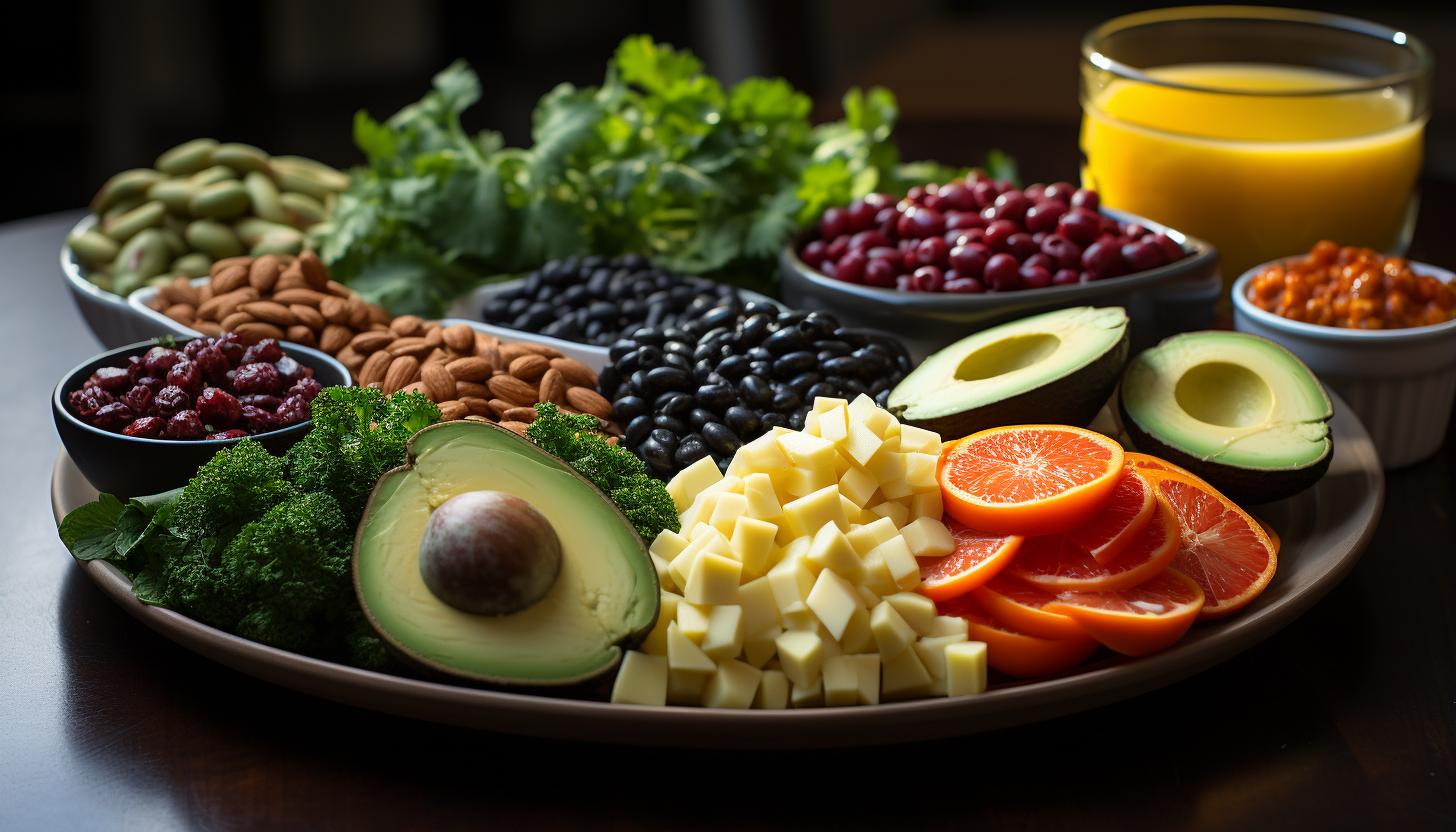
To optimize your performance as a plant-based athlete, it’s crucial to fuel your workouts with an adequate intake of carbohydrates. Carbohydrates are the primary source of energy for your muscles during physical activity, and they play a key role in optimizing athletic performance.
As a vegan or vegetarian runner, it is important to choose high-quality carbohydrate sources that provide both quick and sustained energy. One way to fuel your workouts is by consuming pre-workout snacks that are rich in carbohydrates. These snacks should be easily digestible and provide a mix of simple and complex carbohydrates. Examples include a banana with almond butter, whole grain toast with avocado, or a homemade energy bar made from oats, dates, and nuts.
Optimizing your carbohydrate intake can enhance endurance and delay fatigue during exercise. Consuming enough carbs before your workout ensures that you have sufficient glycogen stores in your muscles to sustain prolonged physical activity. This will help you maintain intensity and perform at your best.
As you transition into the subsequent section about hydration strategies for plant-based runners, it’s important to note that staying hydrated is also essential for optimal performance.
Hydration Strategies for Plant-Based Runners
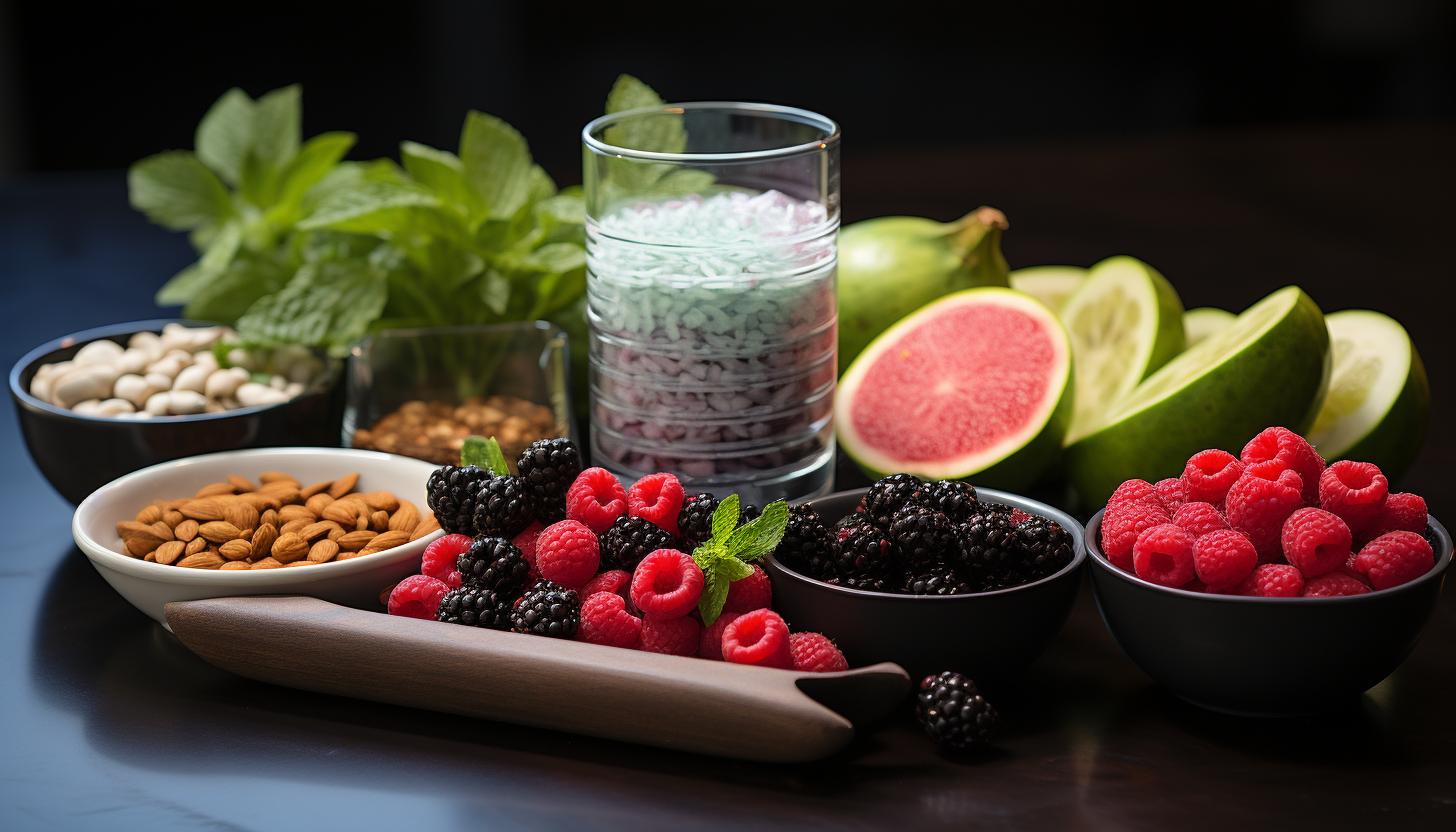
As you continue reading about hydration strategies for plant-based runners, it’s crucial to understand the importance of staying properly hydrated during your workouts. Hydration plays a vital role in maintaining performance and preventing dehydration-related issues.
Here are some key tips to help you effectively hydrate as a plant-based runner:
1. Opt for plant-based electrolyte sources: While many commercial sports drinks contain animal-derived ingredients, there are plenty of plant-based alternatives available. Coconut water, for example, is an excellent source of natural electrolytes like potassium and magnesium.
2. Drink before, during, and after exercise: To ensure adequate hydration, it’s important to drink fluids before your workout begins and throughout the duration of your exercise session. Afterward, continue hydrating to replenish any fluid losses.
3. Listen to your body: Thirst is not always a reliable indicator of hydration status. Pay attention to other signs such as urine color (pale yellow indicates good hydration) and weight changes before and after workouts.
4. Consider timing your hydration: Drinking too much immediately before or during exercise can lead to discomfort or even stomach upset. Aim to consume fluids gradually leading up to your workout and sip regularly throughout.
Recovery Nutrition: Supporting Muscle Repair and Growth on a Vegan or Vegetarian Diet
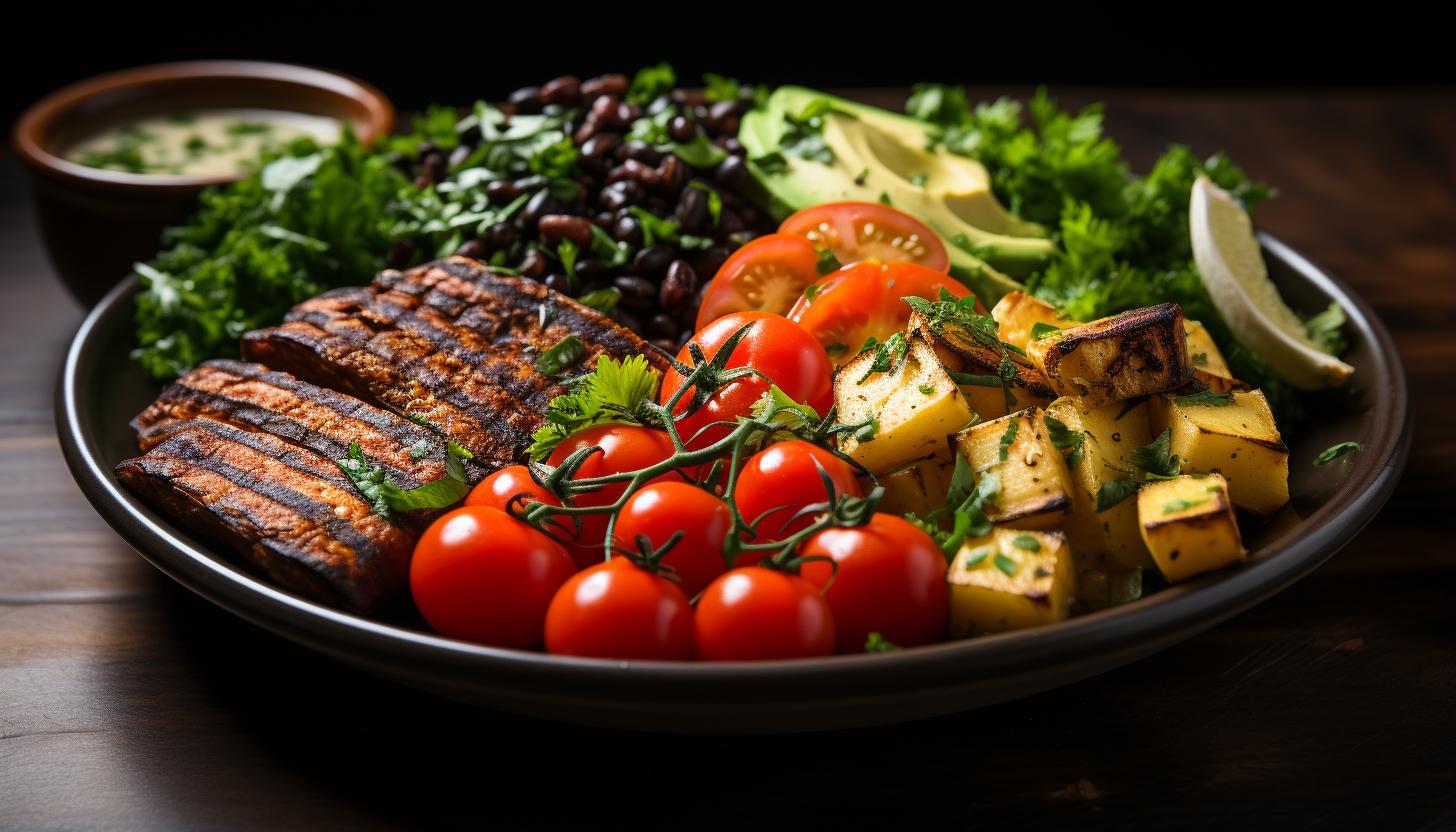
Replenishing your body with the right nutrients is crucial for supporting muscle repair and growth on a plant-based diet. As a vegan or vegetarian athlete, you may be wondering how to effectively replenish your muscles after an intense workout.
The good news is that there are plenty of vegan protein sources available to help aid in muscle recovery. One key strategy for post-workout nutrition is incorporating high-quality plant-based protein sources into your meals. Foods such as tofu, tempeh, seitan, and legumes like beans and lentils are all excellent options. These foods provide essential amino acids that your body needs for muscle repair and growth.
In addition to whole food sources of protein, post-workout supplementation can also be beneficial. Vegan protein powders made from peas, brown rice, or hemp are great choices and can easily be mixed into smoothies or shakes for quick consumption after exercise.
It’s important to note that timing is also critical when it comes to muscle recovery. Aim to consume a combination of carbohydrates and protein within 30 minutes to an hour after your workout. This helps replenish glycogen stores while providing the necessary building blocks for muscle repair.
Conclusion
So there you have it, vegan and vegetarian runners! The secret to reaching peak performance lies in meeting your nutritional needs.
Don’t worry about protein; you can get plenty from plant-based sources like beans, tofu, and tempeh. And remember to load up on essential vitamins and minerals found in fruits, vegetables, and whole grains.
Carbohydrates are your fuel for those intense workouts, so don’t be afraid to indulge in some delicious plant-based carbs. Stay hydrated and support muscle repair with nutrient-rich foods.
With the right approach to sports nutrition, you’ll be running circles around the competition!




